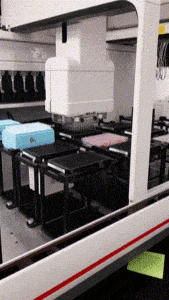Profile
Mungo Harvey
-
About Me:
I am a PhD student at the Institute of Genetics and Cancer (IGC), University of Edinburgh. I like to play football, golf and going climbing with friends. I don’t watch lots of TV but my favourite shows are Line of Duty and Game of Thrones whilst my favourite film series is, and always will be, J.R.R Tolkein’s Lord of the Rings.
-
Read more
I moved to Edinburgh almost 3 years ago and since then have picked up a few new hobbies such as climbing and golf. I still play 5-a-side with colleagues from the IGC every week but decided not to continue playing for a football club in search of something new, I played football all the way to starting University.
Now I have started climbing or bouldering with some friends which is short climbs but with no ropes! It is quite exciting and a good mental and physical workout to make sure you can get up and down the wall safely and effectively. I have also started playing golf in the last few months, this is mostly because I want to beat my brothers who have also started playing!
I have 4 brothers to beat so it’s no mean feat, I also have one sister (who doesn’t play) so I come from a reasonably large family but we all get on very well so we are lucky in that respect!
-
My pronouns are:
he/him
-
My Work:
My work is looking into identifying new drugs or repurposing already known drugs for the treatment of advanced brain cancer (Glioblastoma). We carry out screening of thousands of drugs and assess how well they are working using imaging techniques and exciting data analysis skills, including the use of Artificial Intelligence models.
-
Read more
Glioblastoma Multiforme (GBM) is the most advanced form of brain cancer but there are very few treatment options for patients. Our work is looking to find new ways to treat GBM through the use of drug screening, where we test thousands of drugs to see how they may effect the GBM cells that we grow in the lab. These cells we use are supposed to be similar to the type of cells that would be in a patient (as that’s where they originally came from too).
When testing thousands of drugs this can be a lot of work so we like to make use of robots to help us. These can help dispense solutions and drugs at a much larger scale with more accuracy then would be expected from one a few people carrying this out manually and it will take much less time too! You can see an example in the video below:

We also do this by using a technique called “High-Content Imaging”. This means that when we test our drugs we take pictures of the cells to measure how they change in a variety of ways including changes in their size, shape and texture as this can tell us more about how the cells are reacting to the drugs and then we can decide if this is a positive change we want to see or not. Examples of some of the images can be seen in the images below, let me know if you can see any differences!
When we do our drug screening we generate lots of data and take hundreds of thousands of images so we need to have efficient ways to process this. In my work I make use of coding and a variety of exciting data analytics including the use of machine learning and artificial intelligence to help use make the best decisions faster.
-
My Typical Day:
On a normal day, I try to start at 8am, this gives me some time to check my plans for the day or week. I will normally then prepare experiments during the morning before having lunch with some colleagues around 12pm, I normally take 30 minutes for lunch to have some time to chat (about non-work related things too) and relax a bit before returning to work for the afternoon. Here I will aim to either finish off experiments or do data analysis. More recently though I have had to start writing my thesis (a write up of all my work during my PhD) which I like to do in the afternoons as well. I normally try and finish around 4pm.
-
Read more
My typical day can actually vary a lot depending on the type of experiments I have planned. My normal day will start around 8am and end around 4pm with lunch at 12pm.
When planning and carrying out experiments making the correct time points for the experiments is very important, for example I often want to treat my cells with drugs for 24 hours, so this will often dictate when I start experiments as this can have a effect on my days throughout the week.
I tend to try and complete most of my experiments in the morning but often will leave some smaller tasks to the afternoons as I like to be on my feet and moving around so also try and plan my days to keep moving, this helps me stay motivated and focused throughout the day.
I appreciate this may not sound like a “typical day” but in truth there isn’t necessarily such a thing in this line of work, each day has it’s unique challenges and plans which makes it so exciting.
-
My Interview
